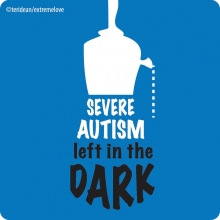Low carb vs Keto diet
Honestly, I don't think you HAVE to eat anything on keto. There are recommendations early on to eat high fat foods to help satiety, but fat macros are never a goal. I think for those of us who have always been lower carb than non WLSers, the switch to keto is easier and we don't really have a need to jack up our fat intake.
I think people think keto is all bulletproof coffee (yuck, never going to happen) avocados and bacon, but I don't eat either of those two more than once a week or so.
I would be true keto (under 20g carbs) if I didn't insist on my Greek yoghurt every night! (At 30g per day, I'm still consistently in ketosis).
Proud Feminist, Atheist, LGBT friend, and Democratic Socialist

If you are eating between 30-40g a day of carbs, in all likelihood you're in ketosis already.
Many ketogenic dieters add fat because they do not have WLS and extra fat 1) does not raise insulin and so promotes fat loss (insulin triggers fat storage) and 2) they, well. They eat more.
It is not necessary to consume extra fat to be in ketosis. You must either a) eat so few carbs that the body is spurred to use fat vs. glucose for energy or b) eat fewer than 500-600 calories a day. The latter is more difficult to do without WLS, and even after WLS high amounts of carbs can cause inflammation and stuff. several psychiatric disorders also appear to benefit from nutritional ketosis vs the standard American diet, as well as neurological disorders like Alzheimer's, parkisnons, and epilepsy.
Science crap for people who want it:
A ketogenic diet at it's simplest involves 20g of carbs or less per day. This is because the idea is to maintain ketosis, which is a metabolic state your body enters in order to burn fat instead of glucose. Fat becomes the main fuel, and is broken down into by-products, two of which are acetoacetate and various forms of ketones.
Some cells in the body still require glucose for fuel. Typically they are too small for mitochondria. These include certain glial cells in the brain, the medullae of the kidneys, and bone marrow. The rest of your cells, as well as 80% of the energy the brain requires, can all use ketone bodies. And, in many cases, these cells actually prefer ketones. Ketones are preferred by many cells in the heart and the brain - ketones can pass the blood brain barrier without transport, whereas even glucose can not.
At any rate, the liver also makes glucose as needed from protein in the absence of dietary carbohydrate in a process known as de novo gluconeogenesis. In theory, you can survive indefinitely without carbohydrates as long as you consume enough fat and protein to survive. This conversion occurs at an energy deficit, that is, it's inefficient for the body to make energy from fat, and so it costs more energy to do so than you get. However! This means that it's good for weight loss.
Now, you can actually be in ketosis if you consume anywhere from 20-60g of carbohydrate. In some cases, athletes can be in ketosis at slightly higher amounts too. It's highly variable, and so it depends? 20g or less just guarantees it.
Further reading:
The Current Status of the Ketogenic Diet in Psychiatry
Energy Metabolism in the Liver
How ketogenic diets may help mitochondria health.
I follow a ketogenic diet post-op. I also have a diagnosis of binge eating disorder. Feel free to ask me about either!
It is not that we have so little time but that we lose so much...the life we receive is not short but we make it so; we are not ill provided but use what we have wastefully. -- Seneca, On the Shortness of Life



